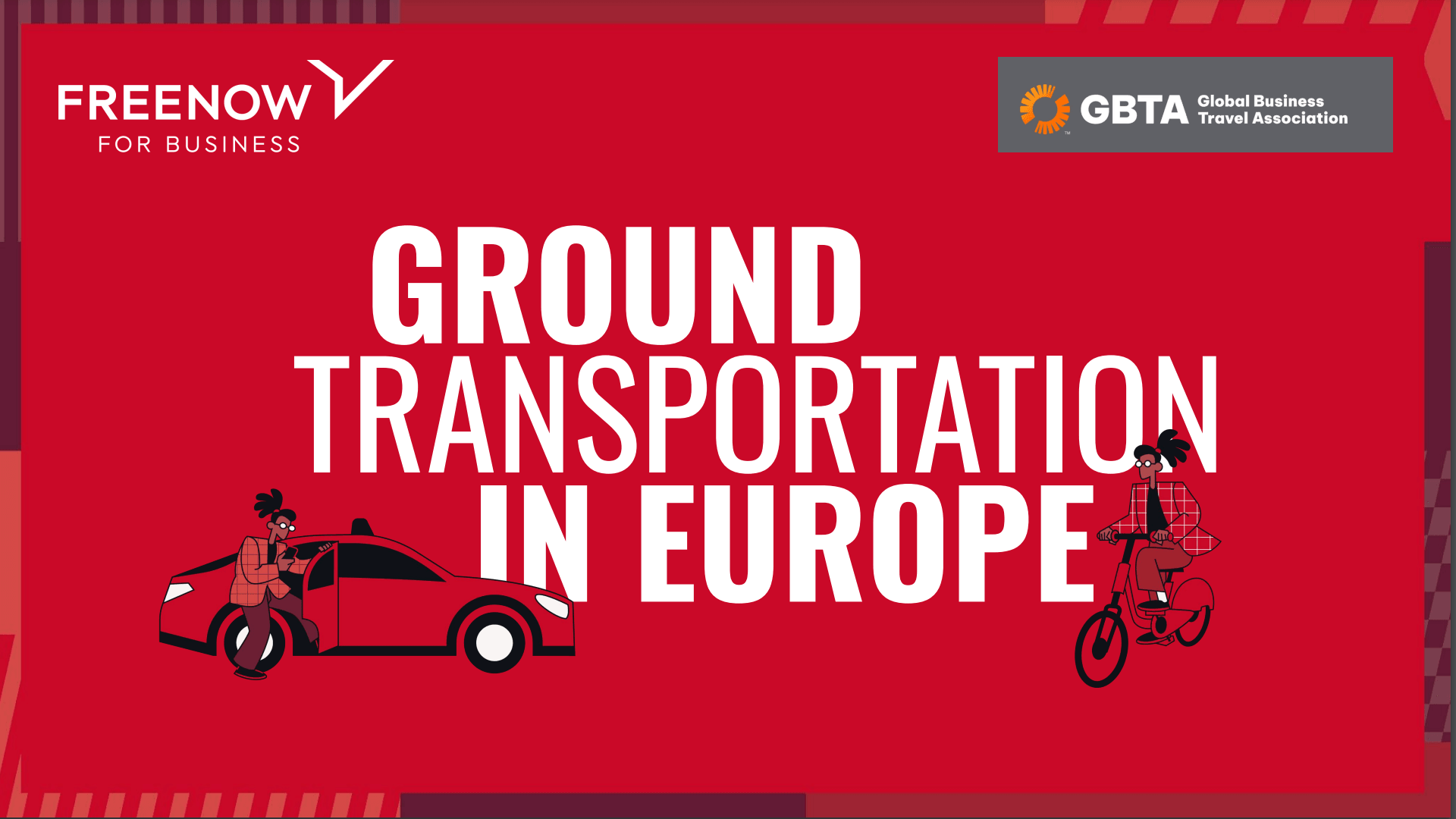TABLE OF CONTENTS:
Over the last few years, new corporate travel trends have made travelling for business the ‘new normal’ for many organisations. The impact of this change is that business travel bookings have almost doubled since 2019.
As the number of employees travelling for work increases, so too does the need for organisations to have a clear and comprehensive business travel policy for their employees (and the business) to follow. Whether you’re looking to improve your company’s existing business travel policy or starting out from scratch – you’ve come to the right place.
This guide to business travel policies has everything you need to know about the benefits, the procedures and best practices to make your policy documentation as effective as it can be. But first – what exactly is a business travel policy and do you really need one?
What is business travel policy?
A company business travel policy is formal documentation that sets rules and provides guidelines for employee business trips. These policies ensure that your staff follow company protocol while travelling for work by giving them the information they need in order to comply.
Business travel policies include guidelines on all the before and after of work travel too – like booking travel arrangements and logging travel expenses – not just what takes place during the business trip.
Why should a company have a travel policy?
Creating a travel policy for your business isn’t technically a legal requirement, but there are legal obligations involved in corporate travel that a policy would help cover.
For example, as an employer, you have legal obligations when it comes to your duty of care in ensuring the safety of your staff. You also need to ensure you’re following procedure when it comes to tax implications, expense reimbursements and visa requirements. A corporate travel policy will demonstrate that your company’s procedures comply with these things.
And while your company might not legally ‘need’ a corporate business policy, there are a whole load of great benefits that make having a policy good for business.
7 Benefits to creating a business travel policy
There are a few key ways your business will benefit from having a corporate travel policy for employees.
A business travel policy will do the following:
Provide clarity and transparency
A good company travel policy provides clarity regarding the expectations and responsibilities of both your company and employees during business travel. With everything there in black and white, this removes any grey areas and guesswork for everyone involved.
Keep staff safe
As an employer, you have a legal obligation to fulfil your duty of care by addressing safety protocols and managing any potential risks involved in business travel. You can add safety measures for business travel to your policy, like health precautions, emergency plans and the need for travel insurance.
Adding these precautions keeps staff safe and shows you care about your employees’ safety. At the same time, it also protects the company from liability should any employee fail to comply with the company policy, putting themselves at risk.
Control travel costs
One of the biggest benefits of having a corporate travel policy is how they help you control and manage expenses related to business travel.
Within your policy, you set rules for booking travel and accommodation, covering travel expenses and how employees will be reimbursed. You can use your travel policy to set boundaries about what mobility options are permitted and any preferred vendors that will help keep costs down. This helps control travel costs, encourages efficiency and ensures employees follow budget limits set by the company.
Reduce admin
A clear and considered travel policy should make work trips easier for employees by streamlining the process of making travel arrangements and other travel-related administrative tasks.
With clear guidelines to follow, this removes a lot of the guesswork, making the whole process much more efficient. Travel policies also reduce workload for travel managers and HR staff, who can direct employees to the company policy whenever they have questions about work travel.
Manage your global reputation
A travel policy will help your businesses manage how employees behave when travelling for work by setting a standard for how they should be representing the company. It also demonstrates your commitment to employee welfare and responsible business practices, which is great for your company’s reputation.
Improve company culture
Any documentation that promotes transparency around business travel will be good for company culture. It promotes fairness by applying the same rules and procedures to all employees.
And in the case of any role-specific flexibility (for example, do senior members of staff have a bigger travel budget?), clarifying these in your policy will help staff understand why they might be travelling differently to some of their colleagues.
Attract new employees
While the documentation itself won’t be available to the public, it’s likely that there will be elements of your travel policy that will be great to shout about in your recruitment marketing when you’re looking to hire new talent.
For example, does your policy incorporate bleisure travel practices into work trips? Do you use gamification systems to reward staff for following travel protocol? These kinds of perks are excellent for your company’s employer branding.
Travel policy best practices
Here are some key best practices when writing a company travel policy and procedures:
- Use clear, engaging and concise language - If you want your employees to engage and comply with your travel policy documentation, you need to make it easy to read and to follow. Leave nothing to interpretation!
-
Make sure everything’s covered - There are a few key areas that every business travel policy must cover in order to do its job. You’ll find these listed in the next section on what’s included in a business travel policy.
-
Update your travel policy regularly - Travel policy documentation should never be static - it should be flexible and constantly open to change as your company grows. It’s important to regularly update your business travel policy based on employee feedback, your own travel data and any changes to market conditions or the company budget.
-
Make your policy employee-centric - A travel policy that speaks only about company rules, regulations, procedures and repercussions of non-compliance is not going to engage staff. You need your travel policy to put employees first, focusing on how and why the procedures benefit them – which in turn benefit the company too.
-
Incorporate sustainability measures - Most companies have sustainability targets to meet when embarking on work travel. It’s a good idea to lay out expectations around tracking and reducing carbon footprint on business trips in your documentation.
How to write a business travel policy
There are a whole load of sample business travel policy templates available that you can use. These are great if you’re a small company pulling together your first ever business travel policy. These templates give you the basic layout and language, so all you need to do is adapt the content to suit your company procedures.
WHAT’S INCLUDED IN A BUSINESS TRAVEL POLICY?
If you’re writing your company policy from scratch without a business travel policy template, these are the essential components to consider including:
- Your booking process and approval procedure - What tool(s) should employees use to book their travel and accommodation? Do employees book travel themselves or submit booking requests to a manager?
- Guidelines on expenses - Details on what can and can’t be expensed (particularly important if you encourage bleisure travel), use of corporate credit cards, how expenses should be submitted and deadlines for claiming expenses.
- Travel and accommodation specifications - Including hotel budgets, preferred mobility options, and acceptable travel classes.
- Guidelines on safe travel -
Including emergency procedures, health insurance coverage, and precautions for travel to high-risk areas. -
Legal Requirements – Information on compliance with applicable laws and regulations, including visa and tax requirements.
Sustainability measures - Does your company have sustainability targets to meet? Your policy should outline your sustainable business travel policy and provide guidelines on how to track carbon footprint for travel managers to follow.
Make business travel policies simple with FREENOW
If your business travel is complex, consider using a business travel platform like FREENOW to centralise all travel arrangements and journeys for your employees.
FREENOW's Business Travel Service helps you manage your company's travel needs easily, by using technology to streamline your corporate travel management.
The service provides you with ready-made solutions for most of your travel policy’s key elements, including:
- Expensing and receipts
- Booking procedures
- Sustainability and carbon footprint
- Flexibility and employee input
- Cost control
- Compliance


